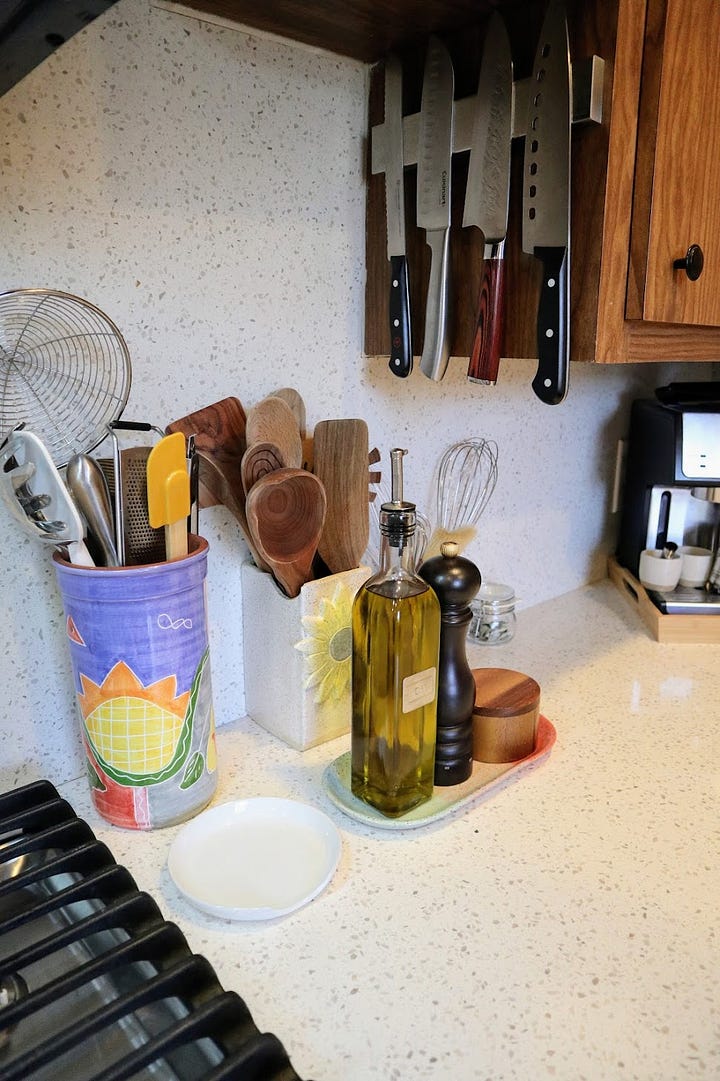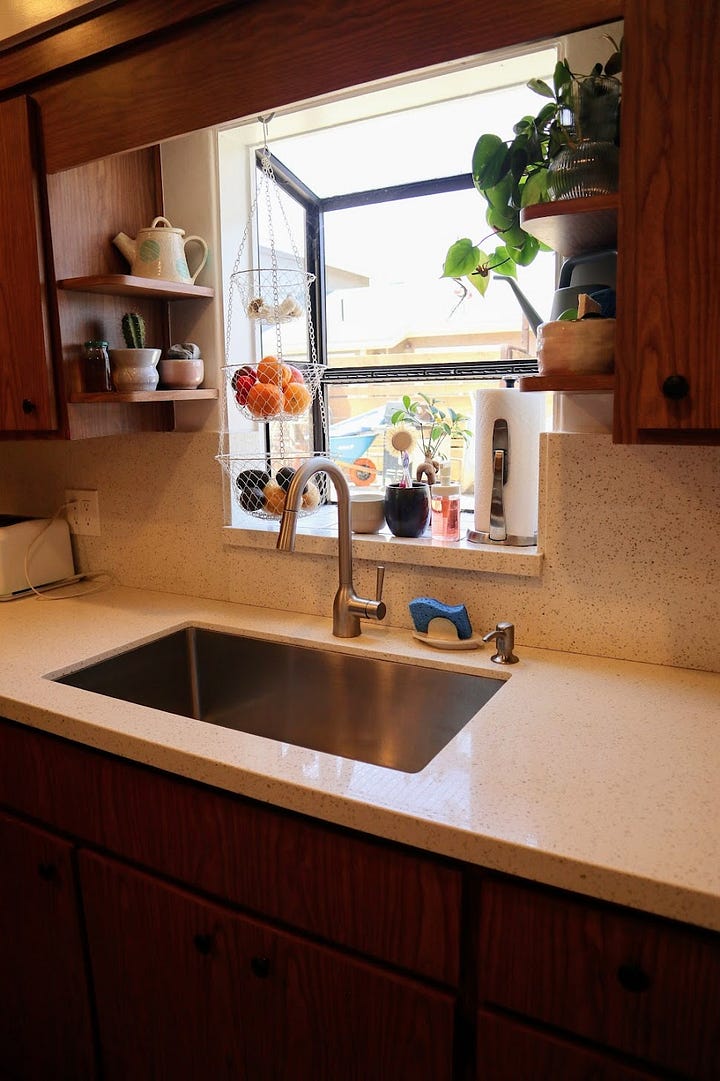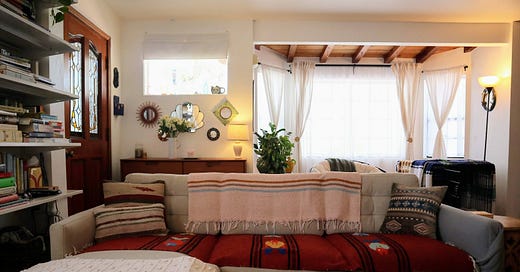Homemaking as a creative pursuit
Plus ramblings about womanhood and feminism, as always.
I have always considered myself a creative person. I love crafting and making things: pottery, knitting, crochet, lamp making, cooking, and, of course, I’ve known from a young age that I wanted to be a writer. Here I am. A writer. It’s arrived.
Why is it so disappointing?
There’s probably an element of expectations vs. reality at work here. I had this very romantic ideal in my head of what being a writer was like. In my imagination, I would start each morning with a steaming cup of coffee at my desk, which was always looking out toward a lake or mountain vista or lush green forest. I’d craft lengthy novels chronicling fictitious stories of deep, interesting characters embarking on noble pursuits. I’d wear comfortable but very stylish clothing. I would be a hoot at a dinner party.
In reality, most of my workdays occur at the dining room table or the couch. Sometimes my desk. Ample coffee is present. Views? Not so much. Sounds of ambulances, ice cream trucks, and revving engines abound. I’m usually haggard-looking, almost never Zoom-ready. The things I’m writing are typically blog posts or reports or technical pieces for a dwindling client list in a depressing economy. I don’t feel as though my writing is particularly good. Mostly, I feel like this is the path I’ve chosen and this is what I know how to do, and it’s the thing that will most reliably make me some money to live.
(I’m still a hoot at a dinner party.)
I always thought writing was the path for me. In many ways, I still do. I haven’t given up hope. But it hasn’t been quite as creative as I always imagined. So I was surprised to find in the past few years just how fulfilling homemaking has been, and how home-related tasks scratched that creative itch. It’s incredibly satisfying to enjoy a freshly vacuumed rug or hop into a bed with clean cotton bedsheets or dig into piping hot pasta dish that took over an hour to complete with an ingredient list in the double digits.
Homemaking is not typically considered creative.
Home design is. Decorating is. Cooking is. Making paper chains for the holidays is. Even arranging trailing plants into wall art is considered creative.
Cleaning? Trying to figure out the best place to store regularly worn shoes? Implementing household systems for mail and laundry and pantry organization? Not so much.
Not only are these tasks often considered not-creative, but they’re looked down upon. Homemaking occupies this weird space in our society where, despite the fact that homemaking is an integral piece of our social and familial lives, it’s considered menial by the patriarchy. After all, it is women’s work.
But even many modern feminists look down upon it. Possibly in an attempt to subvert the gender roles our society has operated with for millennia, but also maybe because they consider the homemaker oppressed.*
The women who choose to make homemaking a part of their public identity (i.e., trad wives on the internet) are often religious, sometimes fundamentalist, and frequently reiterate and reinforce other gendered norms that possibly informed their choice to become a homemaker in the first place.
(Side note. I often see these women touting “family values”. Which I find confusing. Their way of living is not the only way of holding close values in regard to family. And yet, that lifestyle is one often associated with that specific phrase. As if a hard-working single mother of three could not possibly hold family values? I don’t know what to make of it. It seems irrelevant to what they’re doing on social media. But I digress.)
I don’t really find women like me in the homemaking spaces on the internet very often. I’m talking about women who don’t have kids, don’t kiss their husbands’ feet, and who actually just find homemaking fulfilling, interesting, and yes, creative.
Yet, I know these women exist. I talk with them all the time. They’re my friends, acquaintances, and colleagues. Women like me must exist on social media. But they have yet to garner the kind of platform that famed trad wives such as Hannah Neeleman and Nara Smith have achieved.


Is it our preference for straightforward narratives? A hard time understanding nuance? Have we shunted homemaking into a certain category so rigid that there is no room for diversion?
Sometimes I think my love for homemaking exists completely separate to my identity as a woman. But is there really any merit in that consideration? In complete hypotheticals? The world saw me as a woman while I still considered myself a young girl**. Being a woman has been a foundational aspect of my experience. How could I possibly separate it? Sometimes I want to imagine that if I were a man instead that I would still love vacuuming and cooking and bed making. But how can I possibly know that? That isn’t what happened. I am a woman. There is no alternate universe in which I am a man. And if there is, I don’t have access to it.
*There are certainly women whose partners insist that they stay home, which I would of course consider oppressive. That’s not really who I’m talking about here, though.
**Sometimes I think about the fact that I was catcalled by grown men between the ages of 13 and 17 far more than I have been since becoming a legal adult. This isn’t an abnormal experience; many women go through this same thing. Obviously our culture has some gross obsession with teenage girls (both sexualized and absolutely despised) that I don’t have the bandwidth to unpack. But there’s also an element here that I can’t escape from, where these men considered me woman enough to catcall. Even though they must have known I was a girl, they pushed womanhood onto me in those moments: they made it clear that they had control.





